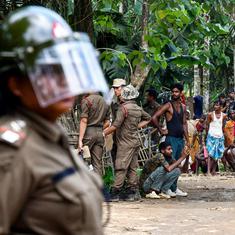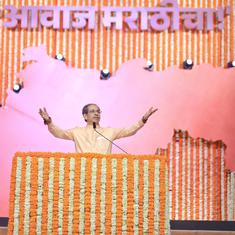It was hard to spot writer Prapanchan without his trademark silk kurta and sunglasses. In Tamil literary world, S Vaidyalingam, whose nom de plume was Prapanchan, was synonymous with style. He took unusual pride in looking suave – a characteristic not many writers were keen on pursuing. But the writer from Puducherry who died of cancer on December 21, 2018 at the age of 73 had an unabashed love for living. Despite the many hardships he faced – Prapanchan had once said how he could have written more, and better, if only he was assured of two meals a day – he celebrated life.
By any standards, however, Prapanchan was extremely prolific. In a literary career spanning 57 years, he produced many novels, hundreds of short stories and hundreds of essays. He was also known for literary criticisms. Before becoming a full-time writer, a feat he managed to pull off despite adversities, Prapanchan had worked as a journalist in leading Tamil magazines including Ananda Vikatan and Kumudham.
Making history
Born in 1945 in Pondicherry, when it was still a French colony, Prapanchan was drawn to history early in his writing. His two most acclaimed novels of history – Maanudam Vellum (Humanity Will Triumph) and Vaanam Vasappadum (The Sky Is Within Reach) – were based on the diaries of Ananda Ranga Pillai written from 1736 to 1761. Ananda Ranga Pillai served as an interpreter to the French East India Company and was particularly close to governor Dupleix. Both the novels sought to draw a larger history from the lives of ordinary people.
At a time when historical works in Tamil literature were usually about powerful kings and beautiful queens, Prapanchan broke the trend and wrote Maanudam Vellum featuring ordinary lives in the 18th Century. Describing most historical novels written until then in Tamil as neither “historical” nor “novels”, he artlessly claimed in his foreword to the novel that the “disgrace of Tamil not having any historical novel was set right because of him.”
It was almost an echo of Bharathiyar’s statement declaring himself a poet who enabled the Tamil language to shed the disgrace of not making it to the international level. “It is shameful for Tamil that the escapades of macho princes with well-endowed women were often passed off as historical novels,” Prapanchan wrote in the foreword.
To him, history was obviously not about kings or rulers. Liberally quoting historians including Romila Thapar and DD Kosambi, Prapanchan wrote that history “is about the agrarian community, about its struggles and revolutions. It is about those who have been constantly exploited. History is about ordinary people and their lives.”
Both Maanudam Vellum and its sequel, Vaanam Vasappadum, were said to be the first novels in Tamil to document history through facts. The latter won the Sahitya Academy in 1995.
A universal writer
Versatility was Prapanchan’s hallmark. He wrote on contemporary issues with as much finesse as he did his historical works. Several of his short stories were severe indictments of the ills he saw affecting society. In Karunaiyinaal Thaan (Out of Mercy), he sought to expose the atrocities committed by the police on ordinary people. In Netru Manithargal (Yesterday’s Humans), he wrote against killings motivated by caste arrogance.
Prapanchan was also known for his sensitive portrayal of women. In 2001, he wrote Sandhya, a novel he described as an attempt to see the woman as an integrated individual. He also tried his hand at poetry, which he wrote with the pseudonym of Prabanja Kavi (The Universal Poet).
Perhaps the most amiable among Tamil writers, Prapanchan will be missed the most by younger writers. He was almost inevitably the go-to person for new writers in Tamil about to publish for the first time. He wore his reputation lightly, always had a word of encouragement, and would willingly attend their launch events. He was probably aware of the toxicity of the environment that women writers in particular have to face, and sought to encourage them more.
True to his pseudonym, which means “the universe” Prapanchan believed in the universality of humanity and in the power of love to triumph over any evil. “I am proud that I am engaged in a work that allows me to create bonds of love, that will carve its understanding out of love and to create a universe based on love. This is my message: that this humanity will thrive only in love,” he wrote in a short self-introduction on his website.
Even cancer could not kill his spirit. Till the end, Prapanchan remained the spirited writer and the friendly human being keen on meeting people and discussing ideas. “The world never stops going around, come what may. Why should we?” he’d often ask his friends.










